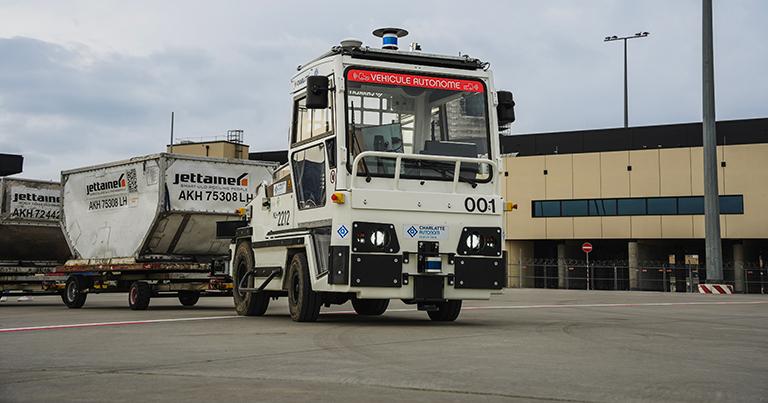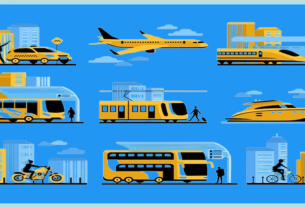|
Getting your Trinity Audio player ready...
|
Fraport is trialling an autonomous baggage and cargo tractor at Frankfurt Airport to enhance both operational efficiency and its role as “a future-focused company”.
The electric vehicle will operate on an eight-kilometre-long test route within Frankfurt Airport’s secure area. The aim of the trial, which will last until the end of March 2023, is to determine whether and under what conditions an autonomous vehicle can support regular baggage and cargo operations on the apron.
“Autonomous vehicles are a very promising future option for us as an airport operator,” said Eric Agthe, Project Manager for Process and Product Development, Fraport. “We’ve already trialled self-driving vehicles in some areas. But deployment on the apron on such a long route is a completely new dimension. Safety will be the top priority during the trial. The fact that we are tackling these kinds of innovative projects, despite the challenging operating conditions, once again emphasises our role as a future-focused company.”
The test route starts in the eastern section of Frankfurt Airport’s apron in the baggage handling facility at Terminal 2, before heading southwards and approaching the future Terminal 3. The trial section is divided into three components, each of which present particular challenges for the autonomous vehicle. These include operations inside the baggage handling facility amid other traffic and people, as well as in the open where there are few other vehicles. To ensure the outcome reflects real-life conditions with sufficient complexity, the test drives will take place both during the day and at night, in different types of weather.
During the test operations, the vehicle will operate at a maximum speed of 13 kilometres per hour and will tow a maximum of three baggage trailers or two large cargo trailers. A safety driver who has received special training and certification for the project will be present on each test drive. In an emergency, this person will immediately be able to react and actively intervene if an unplanned situation should occur.
“For Fraport, this project is of high importance because of its potential to facilitate more efficient deployment of staff in the future,” said Dennis Stein, Vice President Division Development, Logistics and IT, Fraport. “Due to the size of the airport apron, our employees often have to cover long distances. If parts of these routes could be operated using autonomous vehicles, this would give the Ground Services teams more flexibility to handle flights even more efficiently.”



